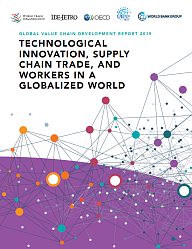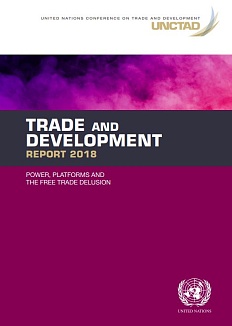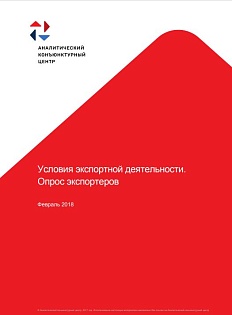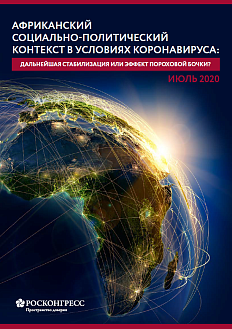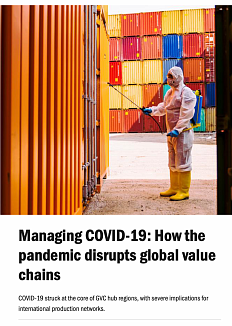Global value chains in global economy
The WTO, the World Bank Group, the Organization for Economic Cooperation and Development, and the Institute of Developing Economies have prepared a joint study of global value chains (GVCs) and their impact on the global market.
In this publication, the authors use the lens of global value chains — the complex network structure of flows of goods, services, capital and technology across national borders — to look at the global economy. The 2019 edition of the GVC Development Report is enormously valuable, in part because it captures the underlying technological and economic forces that are transforming the patterns of global interconnectedness. It’s worth mentioning that more than two-thirds of world trade occurs through GVCs, which is why GVC analysis assumes particular importance.
GVC-related trends
The authors scrutinize a range of global economic trends that have a direct connection with GVCs. From 2000 to 2007, GVCs, especially complex ones, were expanding at a faster rate than other components of GDP. During the global financial crisis there was naturally some retrenchment of GVCs, followed by quick recovery (2010-2011) but since then, with the exception of 2017, growth has, in the main, slowed. In 2017 expansion of complex GVCs was faster than GDP growth, but, according to the authors of the report, it is too early to say if this is a new trend or just a one-year blip.
Concerning which sectors are particularly amenable to GVCs, over a long period the authors found that the higher the technology (knowledge) intensity of a sector, the more significant the increase of complex GVC activities. Thus, GVC linkages are especially important for high-tech sectors.
Apart from the above, the authors give detailed consideration to regional trends, emphasizing the need to study GVCs when analyzing bilateral trade relations.
Global value chains and the labor market
The authors explore ways in which GVCs influence labor markets in developed and developing economies. The emergence of global value chains has offered developing countries new opportunities to integrate into the global economy. This has fundamental impacts on where jobs go, who gets them, and what type of jobs they are. Significant parts of the developing world are deeply involved in GVCs. Their input has been initially concentrated in labor-intensive activities, which may have had important impacts on poverty in developing countries.
These distributional consequences of trade and other forces are a principal concern to policymakers. Policies also play an important role in mediating the relationship between GVCs and employment in developing countries. These include policies that support
(i) participation of developing countries in GVCs,
(ii) fostering positive spillovers from GVC participation,
(iii) upgrading to higher value added tasks within GVCs, and
(iv) mediating negative effects from winners, such as inequality.
GVCs and technology
Having done a detailed study of the effect of GVCs on technology, innovation, and digital economy globally, the authors arrive at the following conclusion. The impact of new digital technologies on GVCs is uncertain: they may reduce the length of supply chains by encouraging the re-shoring of manufacturing production, thus reducing opportunities for developing countries to participate in GVCs, or they may strengthen GVCs by reducing coordination and matching costs between buyers and suppliers. Despite the aggregate gains they create, trade, automation and digital technologies can cause disruption and widen existing disparities across regions and individuals. This calls for broad and comprehensive adjustment policies. While small and medium-sized enterprises (SMEs) are under-represented in GVCs, the digital economy provides new opportunities for SMEs to play a more active role.


